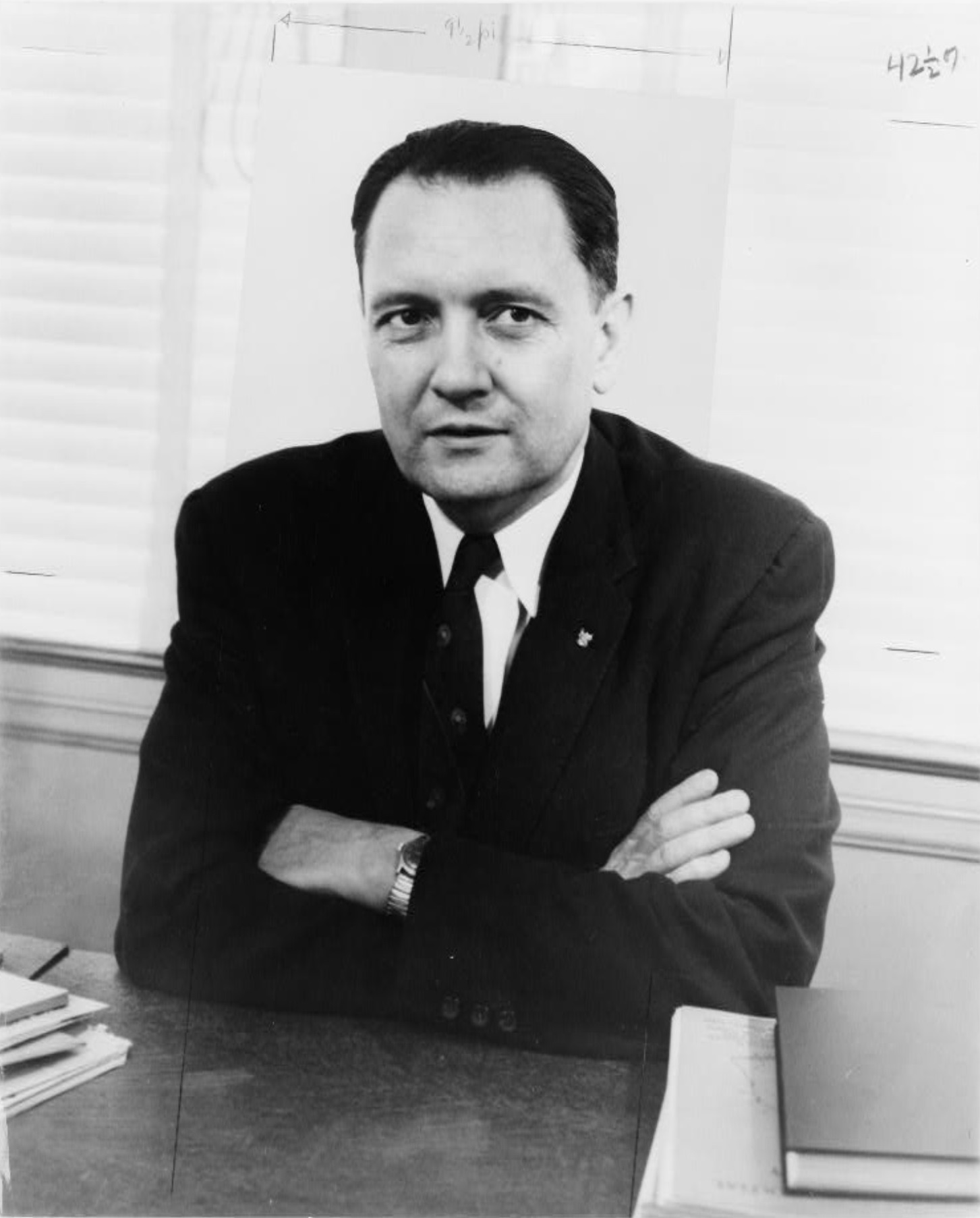Carl Elliott
| Carl Atwood Elliott | |
|---|---|
 |
|
| Member of the U.S. House of Representatives from Alabama's at-large district |
|
|
In office January 3, 1963 – January 3, 1965 all representatives elected at-large on a general ticket |
|
| Member of the U.S. House of Representatives from Alabama's 7th district |
|
|
In office January 3, 1949 – January 3, 1963 |
|
| Preceded by | Carter Manasco |
| Succeeded by | James D. Martin |
| Personal details | |
| Born |
December 20, 1913 Franklin County, Alabama, USA |
| Died | January 9, 1999 (aged 85) Jasper, Alabama |
| Political party | Democratic |
| Alma mater | University of Alabama Law School |
| Occupation | Attorney |
| Military service | |
| Service/branch | United States Army |
| Battles/wars | World War II |
Carl Atwood Elliott (December 20, 1913 – January 9, 1999) was a U.S. representative from the U.S. state of Alabama. He was elected to eight consecutive terms, having served from 1949 to 1965.
Elliott was born in rural Franklin County in the hills of northwest Alabama. He graduated at the age of sixteen from Vina High School in Vina in Franklin County. Few expected him to be able to afford college because of the Great Depression. However, the University of Alabama, under its president George H. Denny, allowed young Elliott to work at a variety of jobs about campus to pay his educational expenses. In 1933, he received his undergraduate degree, and he subsequently enrolled at the University of Alabama School of Law, also located in Tuscaloosa.
While a law student, Elliott ran for the high-profile position of president of the Student Government. With the support of the growing number of out-of-state students and women, Elliott became the first person ever to defeat "the Machine", a select coalition of fraternities and sororities that to this day dominates campus politics at the university. In 1936, Elliott completed his term as SGA president and graduated with his law degree.
Elliott then began his law practice in Russellville near his hometown but soon moved to the community that he would call home for the remainder of his life: Jasper in Walker County, Alabama. As an attorney in Jasper, Elliott spent most of his time representing coal miners and their families, foreshadowing his long political career of fighting for Alabama's poorest, most disadvantaged people. He served in the United States Army from 1942 to 1944. He was twice elected a local judge in Jasper before he ran for Congress in 1948. His "Farm Boy to Congress" persona proved popular among the working class in his district, and in 1948, he unseated Representative Carter Manasco, to the surprise of many political observers. Upon winning the election, Elliott and his wife purchased a residence in the nation's capital and spent the next sixteen years traveling back and forth between Washington, D.C., and Jasper.
...
Wikipedia
